When we get to know people when they’re older, it’s easy to overlook the fact they were once young. Their values then shaped their values now. Realizing this, I asked Liz questions about her youth, the values she learned, and her friendship with Cong. James Clyburn, who spoke eloquently at her funeral. This excerpt from Liz is from my new book Drayton Hall Stories: A Place and Its People, due out in the spring of 2022.
Could you describe your youth near Summerville? What values were instilled in you growing up?
I’m a Charlestonian, having been born in Charleston, but was reared about six miles from Summerville, South Carolina. Since my father worked at the Navy Yard and was the breadwinner, he wanted us to grow up in a well-protected community as he had.
Mother worked in the home. She respected family, was a genteel person, and raised us with Christian values. Instant gratification was not something we took for granted. We were taught not to speak when adults were speaking. We had to go to church. We were taught the work ethic. Mother made sure we had duties that prepared us for life.
As a child, I was smart, so I did the taxes for people in the neighborhood. We made friends with White people. When I went to college, family members were proud of me. I became a teacher, a principal of St. John’s High School on John’s Island, and chair of the Charleston County School District’s Board of Trustees.
How did those values influence your family’s and your response to segregation?
I came up in the ’40s and ’50s, and our parents protected us from segregation. Though I grew up in rural South Carolina, my thought processes were more worldly than that environment, thanks to my mother and father. My father worked at the Navy Yard as a ship fitter, constructing or repairing ships, and traveled with ships all over the world, so he knew more than South Carolina.
When we traveled, we’d put our fried chicken in shoe boxes and only stop by those places that treated us fairly. Mother taught us that we were just as good as anyone else. Of course, I remember going to a segregated church and a segregated school, which is now Alston Middle School where your wife taught. I became a teacher because my mother had wanted to become one. Our parents had the ability to make sure we were protected, and not subjugated to racism. It may seem strange, but it seems I see more racism today.
What led you to get involved in the civil rights movement?
I got involved when I went to South Carolina State University from 1957 to 1961. That was the first time I had a course in Black history. My good friend, colleague, classmate, and partner in crime was Jim Clyburn, now a congressman. We participated in marches. We were taught not to react to someone who spat upon you. We were trained to act like a lady or a gentleman and to act with dignity and move on. Recently, when I heard a professor lecture on the civil rights movement, I was surprised to hear my voice.
My mother gave me a backbone. She and my minister’d say, “If you don’t stand up for something, you’ll fall for anything.” During the movement, when I was called racial epithets, it was like water off a duck’s back.
One summer in the ’60s, Jim and I went to New York, where I worked as a model. We had a platonic relationship and have remained involved in issues, serving on committees and boards together, and have similar philosophies.
When I complained too much to political leaders, he told them, “Leave her alone!”
All images courtesy of the author unless otherwise noted.
ABOUT THE AUTHOR
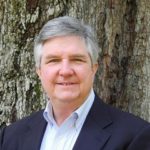 George W. McDaniel, Ph.D., is President of McDaniel Consulting, LLC, a strategy firm that helps organizations use history to build bridges within itself and to its broader constituents. The company’s tag line, “Building Bridges through History,” is grounded in McDaniel’s personal beliefs and his experience in site management, preservation, education, board development, fundraising, and community outreach. Rather than using history to divide us, he strives to help organizations use history, especially local history, to enhance cross-cultural understanding and to support local museums, preservation, and education. Dr. McDaniel led volunteer efforts with Emanuel AME Church and historical organizations in Charleston to use historic preservation to enhance racial reconciliation and healing. McDaniel is also the Executive Director Emeritus of Drayton Hall, a historic site in Charleston, SC, owned by the National Trust for Historic Preservation. He retired from Drayton Hall in 2015 after 25 years of distinguished service.
George W. McDaniel, Ph.D., is President of McDaniel Consulting, LLC, a strategy firm that helps organizations use history to build bridges within itself and to its broader constituents. The company’s tag line, “Building Bridges through History,” is grounded in McDaniel’s personal beliefs and his experience in site management, preservation, education, board development, fundraising, and community outreach. Rather than using history to divide us, he strives to help organizations use history, especially local history, to enhance cross-cultural understanding and to support local museums, preservation, and education. Dr. McDaniel led volunteer efforts with Emanuel AME Church and historical organizations in Charleston to use historic preservation to enhance racial reconciliation and healing. McDaniel is also the Executive Director Emeritus of Drayton Hall, a historic site in Charleston, SC, owned by the National Trust for Historic Preservation. He retired from Drayton Hall in 2015 after 25 years of distinguished service.
A frequent writer, speaker, and facilitator about such issues, he can be reached at gmcdaniel4444@gmail.com or through his website at www.mcdanielconsulting.net.
 George W. McDaniel, Ph.D., is President of McDaniel Consulting, LLC, a strategy firm that helps organizations use history to build bridges within itself and to its broader constituents. The company’s tag line, “Building Bridges through History,” is grounded in McDaniel’s personal beliefs and his experience in site management, preservation, education, board development, fundraising, and community outreach. Rather than using history to divide us, he strives to help organizations use history, especially local history, to enhance cross-cultural understanding and to support local museums, preservation, and education. Dr. McDaniel led volunteer efforts with Emanuel AME Church and historical organizations in Charleston to use historic preservation to enhance racial reconciliation and healing. McDaniel is also the Executive Director Emeritus of Drayton Hall, a historic site in Charleston, SC, owned by the National Trust for Historic Preservation. He retired from Drayton Hall in 2015 after 25 years of distinguished service.
George W. McDaniel, Ph.D., is President of McDaniel Consulting, LLC, a strategy firm that helps organizations use history to build bridges within itself and to its broader constituents. The company’s tag line, “Building Bridges through History,” is grounded in McDaniel’s personal beliefs and his experience in site management, preservation, education, board development, fundraising, and community outreach. Rather than using history to divide us, he strives to help organizations use history, especially local history, to enhance cross-cultural understanding and to support local museums, preservation, and education. Dr. McDaniel led volunteer efforts with Emanuel AME Church and historical organizations in Charleston to use historic preservation to enhance racial reconciliation and healing. McDaniel is also the Executive Director Emeritus of Drayton Hall, a historic site in Charleston, SC, owned by the National Trust for Historic Preservation. He retired from Drayton Hall in 2015 after 25 years of distinguished service.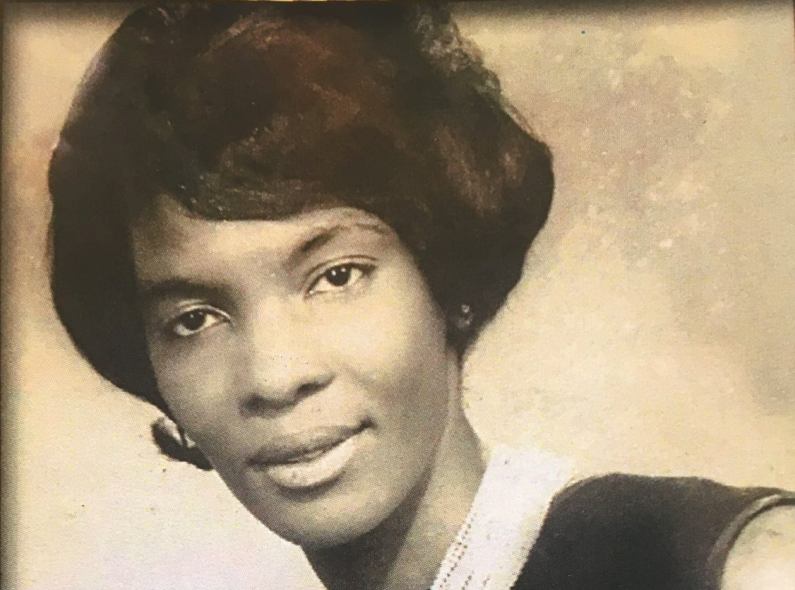
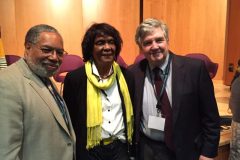
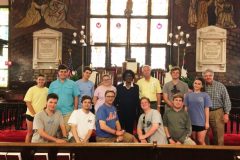
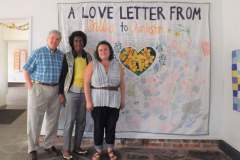
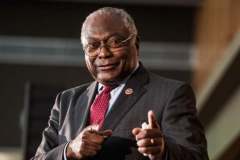
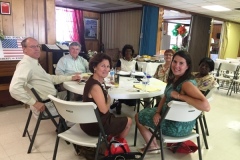
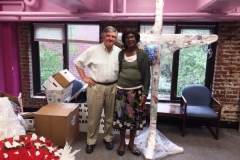
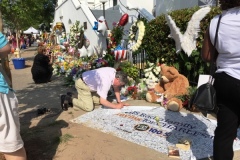
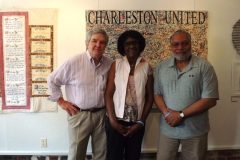
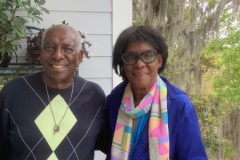
 McDaniel Consulting LLC is a strategy firm that helps organizations use history to build bridges within itself and its broader constituents.
McDaniel Consulting LLC is a strategy firm that helps organizations use history to build bridges within itself and its broader constituents.